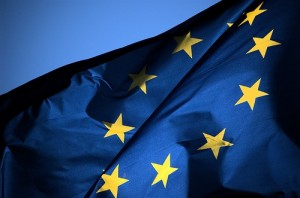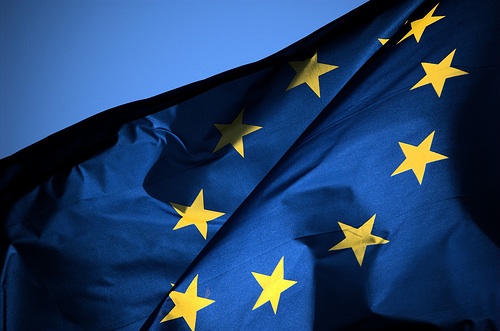 The Protocol on the participation of Israel in Community programmes[1]
The Protocol on the participation of Israel in Community programmes[1]
State of the proceedings
- European Council: The agreement was signed by the Council in April 2008.
- European Parliament: The protocol was then submitted to the Parliament for consent[2].
Lead committee: AFET (foreign affairs)
Rapporteur: Véronique De Keyser
On November 6, 2008, AFET adopted a recommendation and a motion for a resolution.
In the recommendation, AFET decided to give its assent to the conclusion of the agreement by a huge majority: 43 + // 5 – // 3abs.
The draft resolution, adopted at unanimity, set out the political priorities involved in this agreement.
Extracts from the resolution
The European Parliament
7. Welcomes the EU statement at the Eighth Meeting of the EU-Israel Association Council, which underlines that the process of developing a closer EU-Israeli partnership needs to be in the context of the common interests and objectives, including the resolution of the Israeli-Palestinian conflict through the implementation of the two state solution based on international law and on observance of United Nations resolutions; calls on the Commission and the Member States to ensure that the participation of Israeli entities in Community programmes will be in line with the existing EC legislation and policy, with special regard to measures aimed at preventing the participation of settlement-based companies and organisations in the programmes concerned, strengthening the control on Israeli products imported into the EU under preferential importation, and starting the infringement procedures if there are products coming from the Occupied Palestinian Territory; Is confident that Israel will respect the Community’s need to comply with its own legal obligations under the Treaty and under general international law and will cooperate with the Community’s efforts to do so;
9. Asks the Commission to present an evaluation of the participation of Israel in Community programmes to the European Parliament on an annual basis; stresses that the participation of Israel in Community programmes should be in line with the principles and commitments included in previous agreements between the EC and Israel, with special regard to Article 2 of the Association Agreement, and with the aim of resolving the Israeli-Palestinian conflict through the implementation of the two-state solution based on international law and observance of United Nations resolutions;
10. Calls upon the Commission and the Council to ensure that all memoranda of understanding based on this Protocol contain provisions that secure the correct implementation of European Community legislation and the Community’s compliance with its own legal obligations under general international law.
During the plenary debate (December 3 2008), AFET reconsidered its decision and asked for the vote to be deferred. The MEPs agreed and as a result, the consent procedure was frozen.
The rapporteur further justified the decision of AFET by pointing to the deterioration of the humanitarian situation in Gaza following the tightening of the Israeli blockade. The rapporteur also referred to the upgrade which was discussed at that time at Council level:
“Right now, the political ‘upgrading’ of Israel is being discussed at Council level in a great rush and in complete obscurity; and it is precisely this opportunity for upgrading that, today, right now, stands out in the political context of the region and is earning us hundreds and hundreds of e-mails from citizens. The Council therefore needs to improve transparency concerning the debates currently in progress and to be answerable to the citizens of Europe”. The massive citizens e-mail campaign has apparently played an important role in this decision.
The debate on the Protocol can be restarted at any moment.
For more information on the legislative procedure, see here.
Scope of the Protocol
Under the Protocol, Israel will be allowed to participate in all current and future EU programmes which remain open for the participation of Israel. Israel will contribute financially to each of those programmes which will in turn allow its representatives to take part as observers in the programmes’ management committees.
For each specific programme, the European Commission and Israel will negotiate an agreement called “Memorandum of Understanding” which will determine the specific terms and conditions of Israel’s participation. Whereas under the Treaty of Lisbon, the European Parliament’s assent is required for all international agreements in fields governed by the ordinary legislative procedure, the Protocol will enable the Commission and Israel to negotiate Israel’s participation to EU programmes without consulting the Parliament.
“Community Programmes” encompass different actions adopted by the European Community in order to promote co-operation between its member states in different specific fields, over a period several years. The adoption of the Protocol would not mean that Israel would have access to all community programmes, it rather means that when it comes to the programmes opened to Israel, the Parliament would lose its veto power and would not be able to intervene in the procedure of adoption of the bilateral instruments which operationalizes Israel’s participation in a specific programme.
Settlements
No safeguard clause to avoid the participation of entities based in settlements was inserted in the protocol.
A clause stipulates that the Protocol “shall apply, on the one hand, to the territories in which the Treaty establishing the European Community is applied and under the conditions laid down in that Treaty, and, on the other hand, to the territory of Israel”. But, as we know, Israel applies its agreements with the EU to the territories it has occupied since 1967.
Provisional application
The Protocol provides for a provisional application (art.5) (prior to the EP’s endorsement) from date of signature: “Pending its entry into force, the Parties agree that, notwithstanding the completion of their internal procedures, they shall provisionally apply the provisions of this Protocol from the date of its signature, subject to its conclusion at a later date”. Nevertheless, the provisional application clause is only intended to cover a short period before a protocol enters into force. Only one programme, “Entrepreneurship and innovation” has been entered into based on the protocol’s provisional application clause. This was done before Cast Lead. When it became apparent that the Protocol vote was suspended indefinitely, the Commission put Israeli participation in all other programmes requiring a legal basis on hold.
But more recently, answering to a question we addressed to the Commission, David Harmon said “Given that the Protocol provides for provisional application, subject to conclusion later of a Memorandum of Understanding (MoU) concerning specific terms and conditions of Israel’s participation in Union programmes, such MoU could be concluded on its basis of Israel so requests.”
Upgrade of EU-Israel relations
The declaration made by Jean-Pierre Jouyet, President-in-Office of the Council during the debate of December 3 confirms that the Protocol should be seen as an upgrade of EU-Israel relations:
“From the Council’s point of view, Israel’s participation in the Community programme needs to be seen from the perspective of the upgrading of the Union’s bilateral relations with Israel, in which regard the Council sent a signal on 16 June at the 8th Association Council with Israel. This upgrading fits in with the strengthening of the European Neighbourhood Policy”.
Link between the Protocol and Horizon 2020
Horizon 2020 is the EU research program which will replace FP7, the 7th Framework Programme for Research and Development.
- The Protocol will be the legal basis for Israel’s participation in Horizon 2020 provided that the European Parliament gives its assent. Its adoption will enable the Commission and Israel to negotiate a Memorandum of Understanding, without needing the consent of the Parliament.
- If the Parliament does not unfreeze discussions on the Protocol, the Commission could, in theory, start negotiating a Memorandum of Understanding with Israel. Nevertheless, this could be seen as an attempt to bypass the Parliament and would be very sensitive politically. The Commission stated that at this stage it was difficult to anticipate what would happen of the Protocol remains frozen in the Parliament. But, should the negotiation of a MoU with Israel be decided for the future, the EP would be immediately and fully informed.
- If the Parliament rejects the Protocol, the Commission could 1. Negotiate a new Protocol with Israel, taking into consideration the EP’s reasons for rejection 2. Negotiate a bilateral instrument on the participation of Israel to Horizon 2020, of similar nature as those concluded to allow Israel to take part in previous EU Research Programs, which will be submitted to the EP for consent.
Conclusion: the Protocol on the participation of Israel in Community programmes is an integral part of the upgrade of EU-Israel relations. As in the case of ACAA, the Commission will state that since the Protocol is part of the 2005 Action Plan, it should not be seen as an upgrade. What does or does not fall within the upgrading process has only been recently defined by the Commission which now considers that all the agreements that are part of the Action Plan do not constitute an upgrade. However, this should be seen as a manoeuver intended to promote the adoption of new agreements with Israel without seeming to strengthen EU-Israel relations.
The Protocol is of prime importance for Israel as it constitutes the legal basis of its participation to Horizon 2020 (which will start the 1st January 2014). The discussions with associated countries will start within the next months and we know that Israel has been pushing for the Council to request the Parliament to revisit the issue. It is therefore reasonable to assume that the discussions will be reopened very soon.
The EP has just given it consent to the EU-Israel ACAA protocol which was also frozen for political reasons. One can fear that the adoption of ACAA will facilitate the adoption of this Protocol. We should therefore get prepared for a massive mobilization.
[1] Protocol to the Euro Mediterranean Association Agreement establishing an association between the European Communities and their Member States of the one part and the State of Israel of the other part, on a Framework Agreement between the European Community and the State of Israel on the general principles governing the State of Israel’s participation in Community programmes.
[2] The consent procedure gives Parliament the right of veto. Parliament’s role is thus to approve or reject the legislative proposal without further amendments and the Council cannot overrule Parliament’s opinion.
